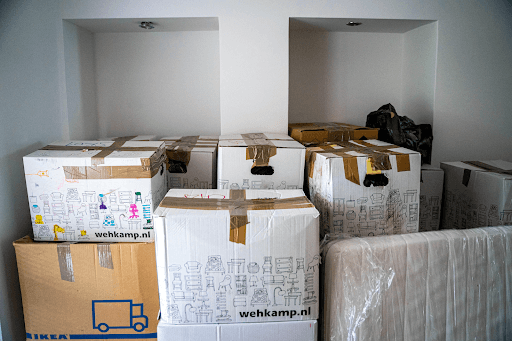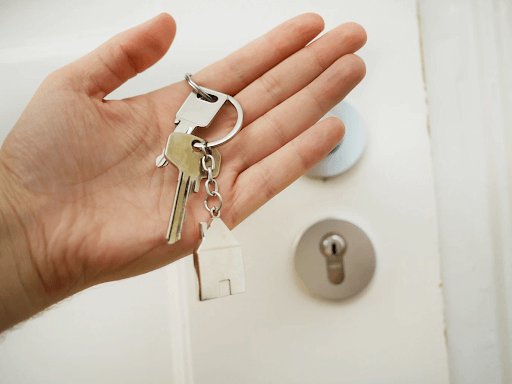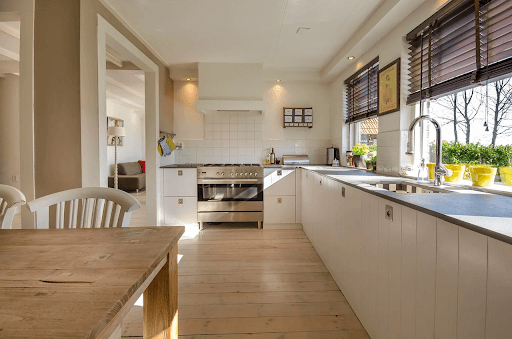For most of us, moving into a new home comes with a feeling of optimism and opportunity. Unfortunately, moving also invites stress. Between the extensive packing and unpacking process, and the worry of feeling unsafe in your new environment, moving can quickly turn from exciting to overwhelming.
With these tips, you won’t have to stress about securing your property. You can enjoy your new space while feeling confidently that it will keep you safe.

Pack Wisely
As you pack up your belongings, we recommend using colored sticky notes, tape, or markers to coordinate which room a box belongs in. This saves a shocking amount of time, as it takes the guesswork out of unloading your belongings into your new home.
It’s important to take inventory of your things as you pack them up. Whether you are moving alone or you’ve hired a moving company, this will prevent your belongings from getting lost or stolen. Additionally, if you color coordinate your boxes, it will be easy to count the number of boxes you have for each room in the house.
Valuable items, like jewelry and sensitive documents, should always be stored in a security safe or somewhere out of sight. This can be pretty challenging to maintain during the move, so we recommend storing valuable items with a friend or family member until you’ve settled into your new home.

Rekey the Locks
As soon as you have the keys to your new home, you should consider rekeying the locks or installing new ones.
We typically recommend lock rekeying because it does not require changing the locks themselves. Instead, the pinning inside the locks is changed – it’s a win-win! You get to keep the same lock mechanism and spend less money on fixes, and have the peace of mind that the old keys no longer work.
This way, you’ll know exactly who has access to your home. Plus, keys wear down over time. By rekeying your locks, you won’t have to worry about your keys getting sticky for years to come.
Make sure there are enough keys for each member in the home. You may also want to make an additional copy to share with a trusted friend, or family member not residing in the home.
Check the Windows
Similar to checking the locks on your doors, you should also check the windows. Be sure the window and window locks both shut completely. You’ll also want to make sure your windows have protective screens, especially for second floor windows.
As you arrange your items in your new home, be mindful of which belongings are in view of the window. You should always leave valuable items out of sight.

Prepare Your Home For Emergencies
A fire extinguisher should be stored on each floor of your home. It’s best to keep one in the kitchen as appliances like the oven and stove can increase the risk of residential fire.
You also want to check that your smoke detector is working and that the batteries are fully charged. Modern smoke detectors typically come equipped with a carbon monoxide detector. If yours doesn’t, consider purchasing one.
Next, check the dryer vent to be sure it is not clogged with lint. This may sound unnecessary, but if the dryer vent is clogged, hot air from the dryer will be trapped in your laundry room, increasing the risk of fire. In fact, laundry rooms are a leading cause of fire and water damage in residential homes.
As you fill the drawers and cabinets of your home, make sure you have flashlights and extra batteries stored throughout. Ideally, you should keep a flashlight in each room in case of an emergency.
Lastly, be sure to check that your security system is working properly. Your security system is there to keep you safe, but it only works if you work with it. Once you’ve tested that it’s working properly, set up a routine to check it regularly.
You should be able to enjoy your new home without being worried about your safety. By following these simple steps, you can alleviate some of the moving stress. If you need to rekey your locks or install new ones, your local Pop-A-Lock is here to help.


